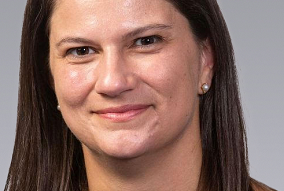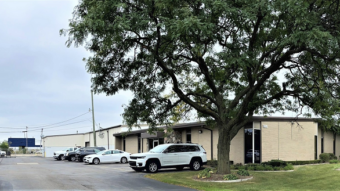Like all real estate professionals, David Frantze, co-chair of the real estate division at Kansas City-based law firm Stinson Morrison Hecker, is dealing with an uncertain economy. Frantze, though, is doing his best to help his commercial real estate clients navigate through these challenging times.
Here’s what he recently told Midwest Real Estate News about the challenges commercial real estate brokers and developers are facing today.
Uncertain times: I would say that the uncertainty in our market, not unlike across the country, is still continuing. I think probably in the May/June timeframe, we started to see a lot of talk about a lot of new things. Quite honestly, the market drop and, for lack of a better term, plunge of July and August brought about increased uncertainty. We saw three or four significant projects suddenly come to a halt. The people behind them said, ‘I’m going to stop for now and see how this all plays out.’ That’s unfortunate because we had been seeing some early stages of some pickup of activity. People were starting to come out of their shells, so to speak. Right now, though, we’re sort of at the hesitation level again.
A surprising turn: It was surprising to see that. Even folks who were doing deals with substantial equity, we saw them saying, even with 100 percent equity, that they are going to wait and see where the bottom is right now.
Filling gaps: For us, we are continuing to see the need to help our clients fill the financing gaps in their projects. That gets resolved in several ways. In some instances, given the current interest-rate environment, we are seeing providers of equity and mezzanine and sub debt being willing to take on a good project. We are still seeing the need for government to step up and help fill the gap on projects in the form of tax increment financing or tax abatement or some type of incentive to make those deals happen.
Uncertain clients: Uncertainty is still strong out there among our clients. But we are seeing some sectors, such as the agribusiness community right now with commodities prices being where they are, seeing a long-term shift. Folks in that area, if not more optimistic at least have a higher degree of certainty that their investments will have a greater return. They don’t expect the fundamentals of the world market to change except in a positive way. We are seeing the demand for ag products going up. We see a significant amount of agribusiness-related operations coming to the market now. Those folks particular, particularly those folks with significant equity to put into deals, are finding that it is a good time to be in that business.
The benefits of a diverse economy: We have a very diverse economy. We have substantial assets in health care and in life sciences centers. Those assets seem to be able to perform even in this kind of economy. Those segments of the economy seem to be doing better than the market as a whole.
We have substantial automobile manufacturing, too. The products that are produced here locally are very popular. Those jobs are staying and expanding. That is a positive. We have been a little soft in the financial services side like everyone else. At the end of the day, Kansas City has a lower cost of living, an educated workforce and a good quality of life. It is a pretty attractive place for folks.
The low utility costs have been attractive to users that are high-tech manufacturing or data center driven, places where power costs are a big issue. And, though it’s often said, it is true: Our market doesn’t go up as fast as some parts of the nation. But we don’t go down as far, either. We are much more stable. We don’t have the party the night before, but we also don’t have as much of a hangover the next morning. That is kind of indicative of our economy here.
Looking for a positive change: We have seen lenders coming into the market who are prepared to lend. But we are not likely to see 20 percent equity deals or less nearly as much as we used to. We will need to see more equity in deals and less leverage. That is a shift of thinking. The players who have equity, who have the ability to identify the performing deals and lease smart with good tenants, they will still be successful.




